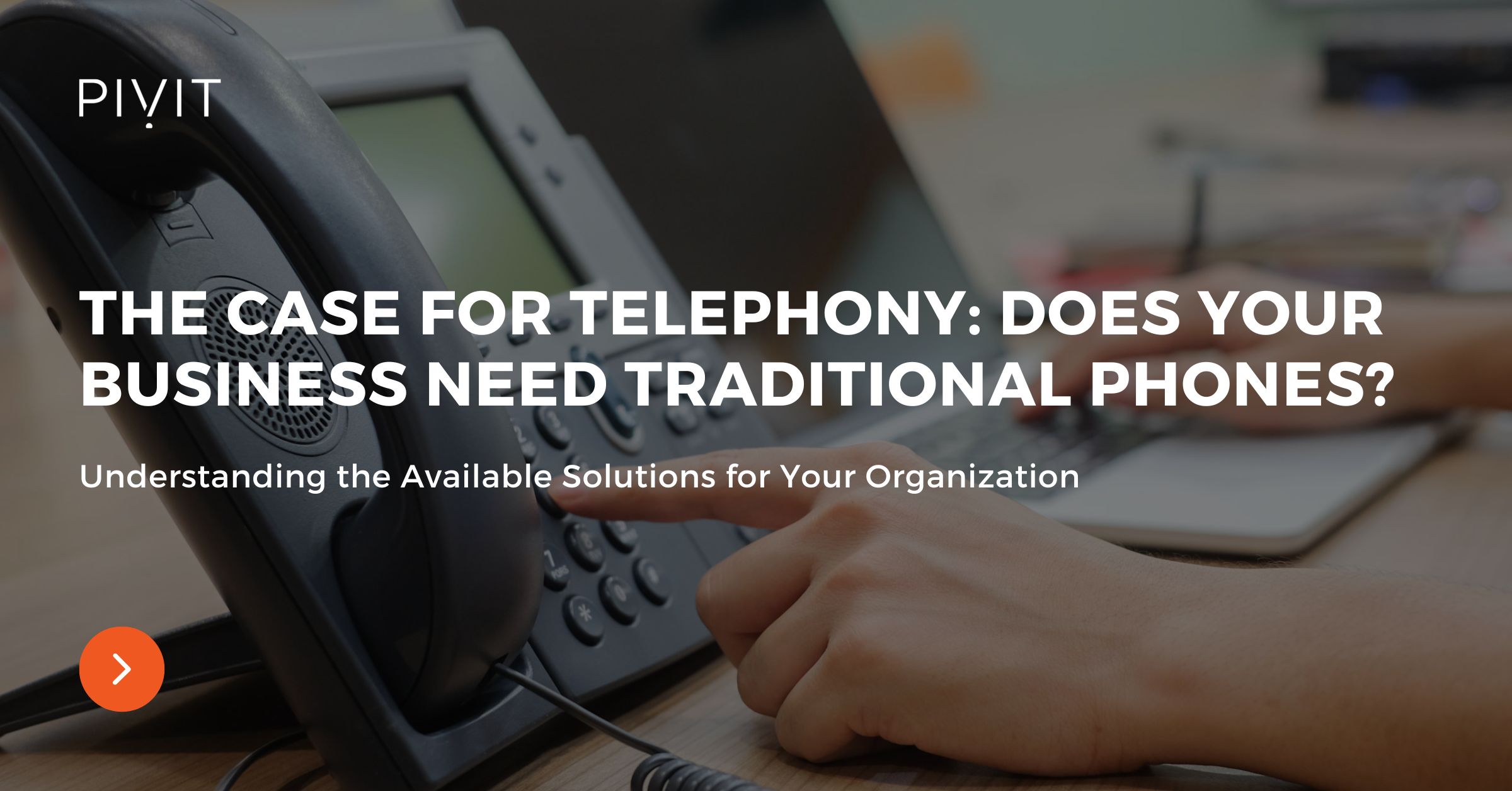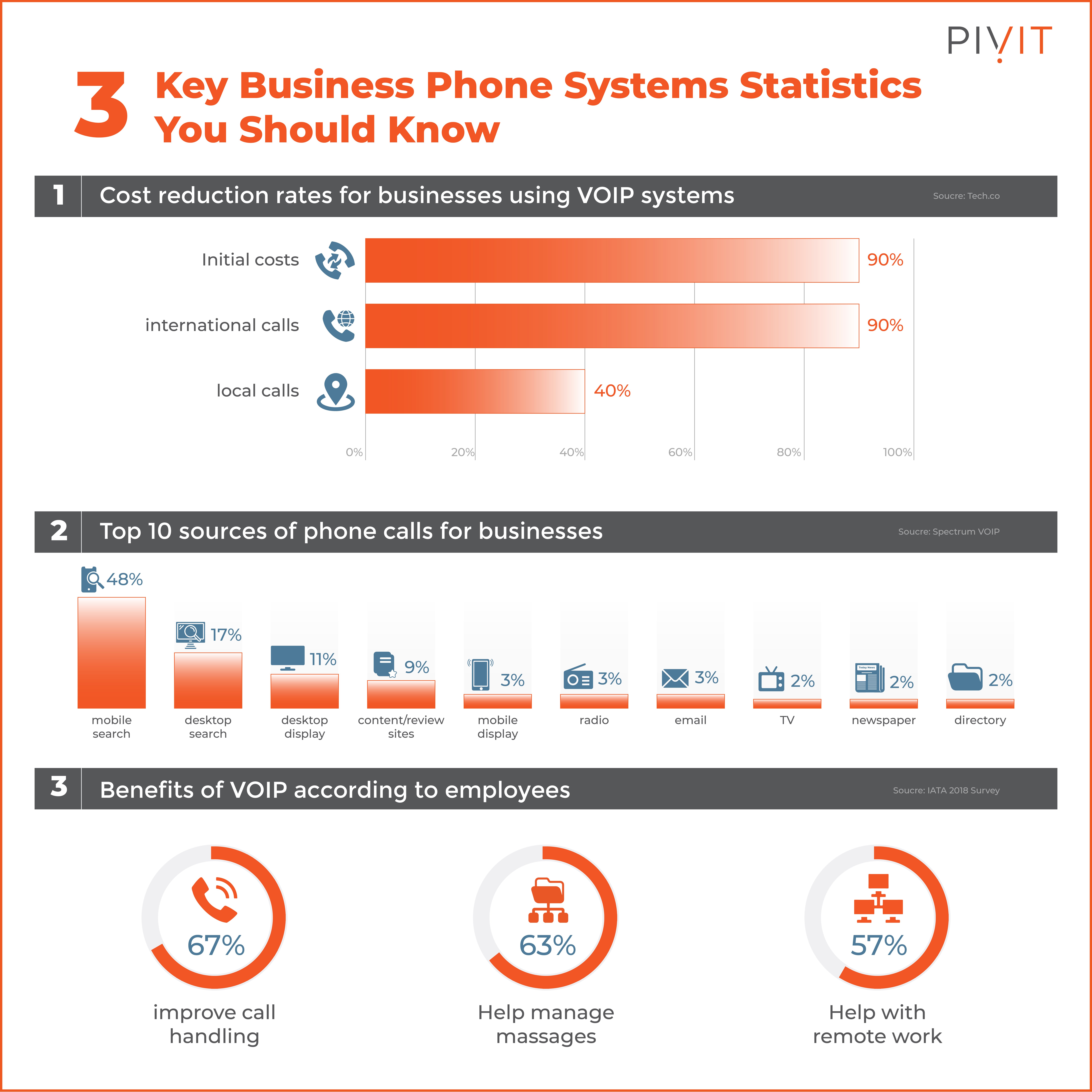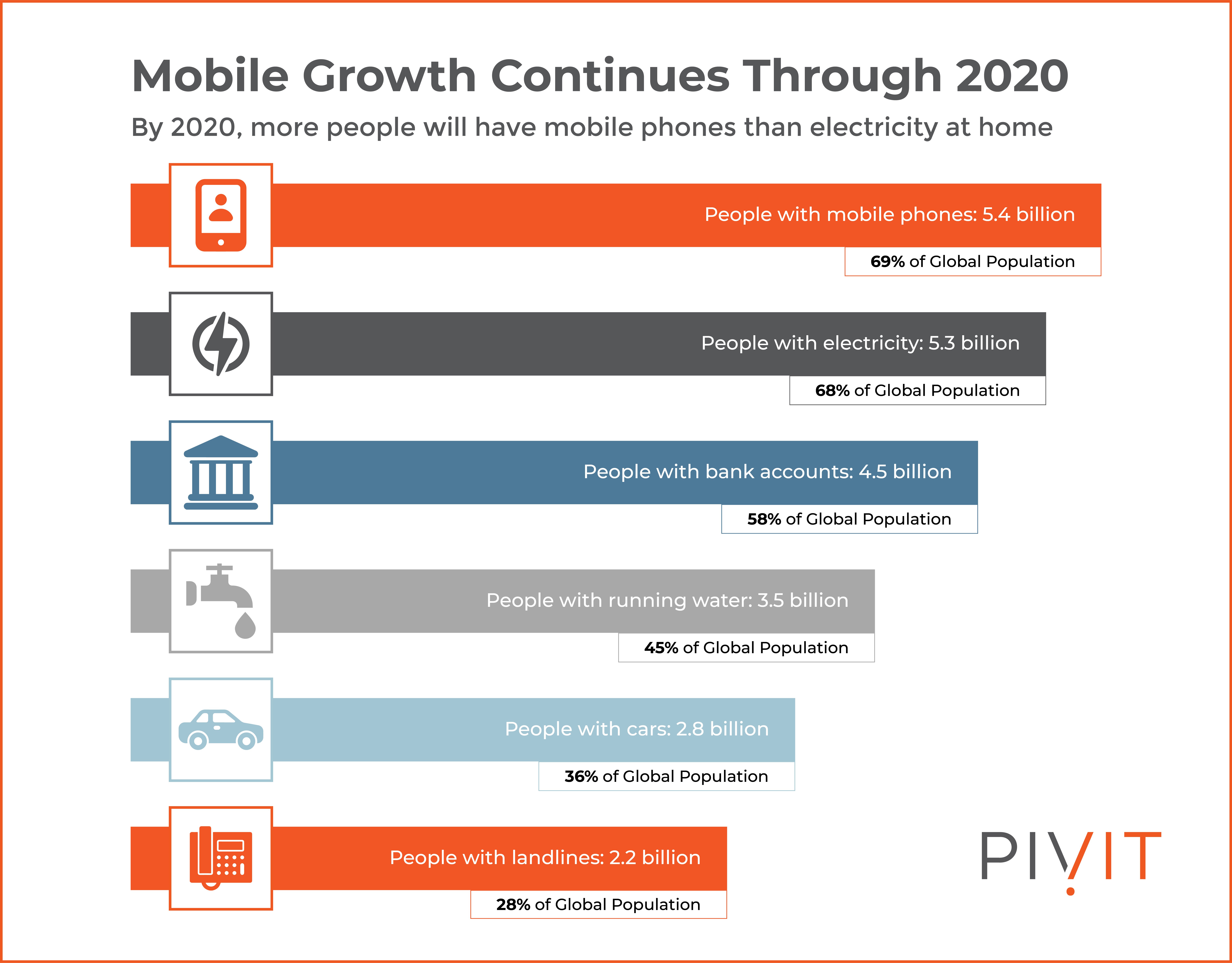The Case for Telephony: Does Your Business Need Traditional Phones?

Can you remember when communication meant picking up a telephone and dialing a number? While telephones were instrumental for communication over long distances for people, they were equally impactful for businesses. In the digital era of computers and smartphones, the good old telephones have lost their appeal.
Many businesses today use applications and tools for communication within the organization and outside it. These applications are interoperable, meaning employees can simultaneously use them on their phones, tablets, and laptops.
But does that mean you should entirely kill traditional phones from your organization? While you may use digital communication applications, having telephones to connect people within your organization and your business can be beneficial even today.
In this article, we will:
- Take a look at telephony technology.
- Compare telephones and mobile apps.
- Explain why phones are still important to your organization.
Not the article you were looking for today? Try these out:
- What Is a GRE Tunnel and How Do You Configure One?
- Your Ultimate NAT Configuration Guide for Cisco IOS – Pt. 1
- A Complete Guide To Improving Redundancy with EtherChannel Technology
A Quick Look Into Telephony Technology
The telephones we use today have come a long way. Telephony technology today is a mix of traditional telephony, cellular, and internet-based communication.
Until the 1980s, traditional phone lines were in use that transmitted audio signals over wires (copper, back in the day).
In the early 2000s, Voice over Internet Protocol (VoIP) changed telephony technology, removing the need for cabling as telecommunication was done using computer networks and the internet.

Image: source
For businesses, the private branch exchange, or PBX systems, became the norm for businesses. These systems allowed organizations to connect users within their premises and with the outside world using telephone lines.
Such systems can combine telephony technologies, including VoIP, cellular networks, and analog lines that could be interconnected using gateways. PBX also introduced features like call forwarding.
Now, cloud-based telephony technology is making strides that leverage cloud networks for telecommunication. The cloud telephony market is estimated to reach $51.5 billion by 2032, indicating that cloud-based telephony will become the dominant technology for telecommunication in the corporate world.
Telephones vs. Mobile Apps
Skype changed the game with VoIP communication back in 2003, especially video calling. While individual users quickly adopted it, it gradually paved its way into business and corporate communication, mainly for video conferences.

Image: source
With the advent of smartphones, there are multiple mobile apps for communication with an organization and outside it. For instance, Slack is a popular application for team communication.
Zoom took off in the aftermath of the COVID-19 pandemic, as much of the communication moved online. The cross-platform application brought more functionality as users can share screens and hide backgrounds in video conversations.
It’s safe to say that mobile applications have significantly improved communication for the average person and business. More convenience, faster connectivity, and more functionality allow for better communication.
Compared to these apps, traditional phones don’t provide as much functionality for communication. For instance, telephones, even those relying on the internet for signal transfer, only provide audio communication.
That said, phones are still useful because of their simplicity. They can be beneficial for quick internal organizational communication, costing next to nothing. Similarly, telephonic communication doesn’t necessarily require logging into an app or software.
Small businesses and enterprises continue to have phone lines for internal and external communication despite relying on mobile apps.
Unlike in the old days of telephony, when businesses had to bear high costs for calls, internet-based telephony protocols made it incredibly cheap to connect via traditional telephones.
Why Phones Are Still Important for Businesses
Whether you’re running a large corporation or a small business with a handful of employees, having a traditional phone can be beneficial in multiple ways. Here’s why you should consider keeping a telephone system within your network infrastructure:
Phone Calls Are Better for Sales
Regarding prospecting, phone calls have better success rates than email. Phone outreach has a response rate of 8.1 percent compared to a mere 0.3 percent response rate for email.
If you’re running a business requiring frequent sales pitches and cold calls, the phone is your best bet compared to emails or messages. The reason is simple: people are more likely to respond to calls than emails or text messages.
While mobile applications are feasible for communication within teams, good old telephones are the best approach for cold calling. As opposed to calls, prospecting emails may end up in the spam folder or go unnoticed as just another promotional email.
Calling from an official number and courteously speaking to a potential client can increase the likelihood of conversions.
Phones Offer More Availability
A rather understated drawback of using managed telephony systems and mobile apps is that there’s no guarantee of 100 percent availability. If the network of your telephony solution provider is down or the mobile application glitches, your communication link is down. This can negatively impact productivity and client relations.
While this is rarely the case, it’s a possibility that you can’t entirely discount. Meanwhile, phones, especially those linked to phone lines, may still provide communication even when your network or an application is down.
Private VoIP Systems Offer Security and Privacy
We are living in increasingly vulnerable times in terms of digital security, as network breaches have consistently increased over the past years. That raises security and privacy concerns for enterprises that rely on managed telephony solutions and software tools for internal and external communications.
A network breach, whether at your or the provider’s end, can compromise your organization's audio, video, or text communication. That exposes your enterprise to costly data breaches and opens a whole can of worms from a compliance perspective.
Private telephony solutions using VoIP that are wholly implemented and managed internally by an organization provide more privacy and security. While they work like normal PBX systems, the control is within the organization.
Such systems are more suitable for internal communication within an enterprise. These can also be blended with managed telephony solutions allowing users to connect outside the network.
Phone Calls Add a Personalized Touch
Believe it or not, audio calls also have a more human touch. Speaking to a person in real-time feels more personalized than email, text, or live chat communication. But this human touch isn’t just beneficial for communication with customers and employees within an organization.
Although personal preferences vary by people, many people simply prefer to talk to an actual human than a voice recording or bot. In one survey by a B2B company, 88 percent of respondents said that they prefer speaking to a live human to navigating phone menus. That just goes to show that you don’t just need phones but also more humans answering those phones.
Lastly, having a phone number for customers to call adds another mode of communication and customer support, which is good for business.
Try PivIT’s Telephony Solutions!
As a leading provider of network equipment, PivIT also provides telephony equipment from the world’s leading network equipment manufacturer Cisco. These telephony systems seamlessly blend with your existing network, supporting multiple VoIP standards.
Taking advantage of cloud technology and cross-platform applications for business communications is good, but you should also leverage the benefits of traditional phones. It’s an economical and reliable communication solution that will pay for itself in the long run.
Improve your telephone system with high-tech options from PivIT!

